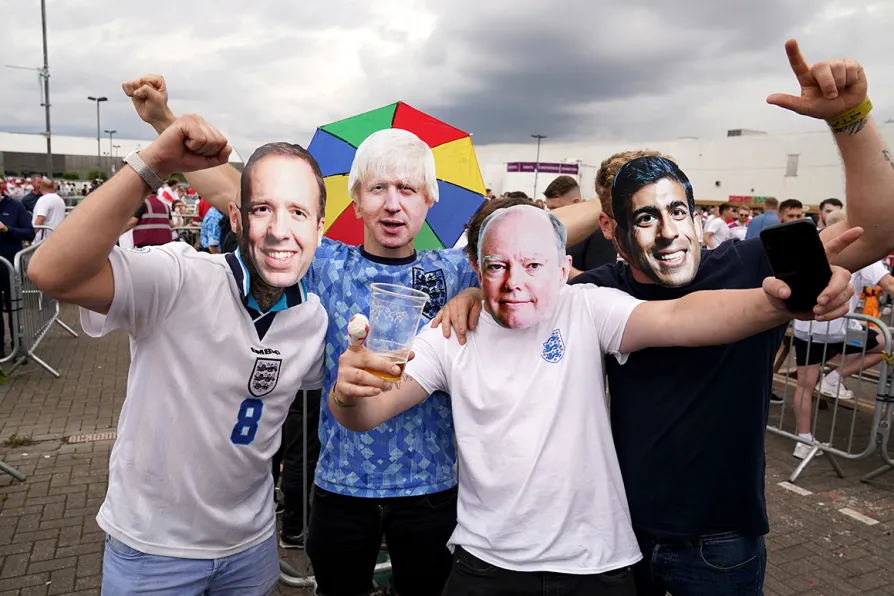Labour prospects in May elections may be irrevocably damaged by Birmingham Council’s costly refusal to settle the year-long dispute, warns STEVE WRIGHT

 England fans wearing masks of Matt Hancock, Boris Johnson, Chris Whitty and Rishi Sunak at the fan zone in Trafford Park, Manchester ahead of the UEFA Euro 2020 Final between Italy and England, last Sunday
England fans wearing masks of Matt Hancock, Boris Johnson, Chris Whitty and Rishi Sunak at the fan zone in Trafford Park, Manchester ahead of the UEFA Euro 2020 Final between Italy and England, last Sunday
IT WAS hardly possible to miss the politics around the European football championship. Indeed the traditional cries of “keep politics out of sport” were very muted.
“Patriotic” Tory MP Lee Anderson refused to back the England team because they were taking the knee against racism. Boris Johnson and Priti Patel were relaxed about racists booing the team until they found out they were doing well — then they started cheering them.
Sport and politics have a long history and no more so with the challenges socialists have made back to the 19th century to try to keep the interests of capital out of it. There was even a Workers Wimbledon from 1932-1951, which may seem a little odd to some who currently frequent the championships.

Research shows Farage mainly gets rebel voters from the Tory base and Labour loses voters to the Greens and Lib Dems — but this doesn’t mean the danger from the right isn’t real, explains historian KEITH FLETT

KEITH FLETT revisits the 1978 origins of Britain’s May Day bank holiday — from Michael Foot’s triumph to Thatcher’s reluctant acceptance — as Starmer’s government dodges calls to expand our working-class celebrations












